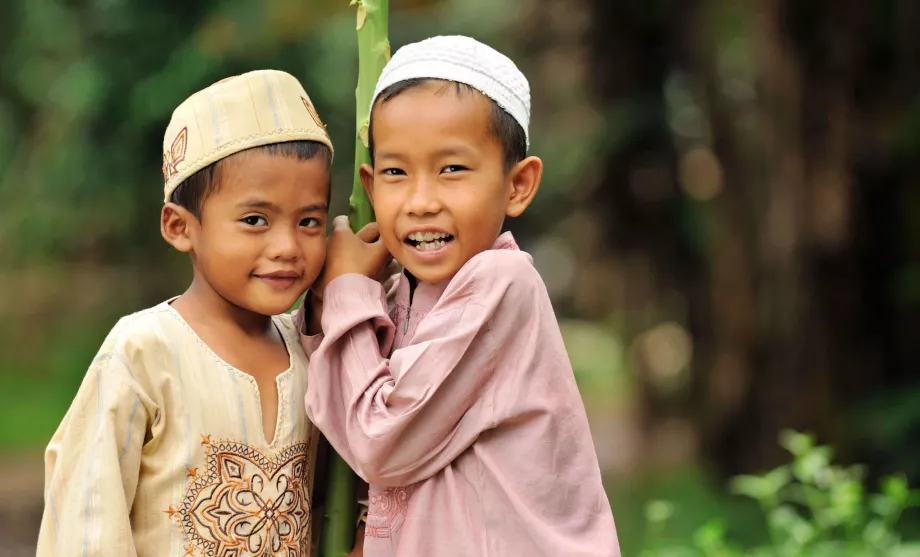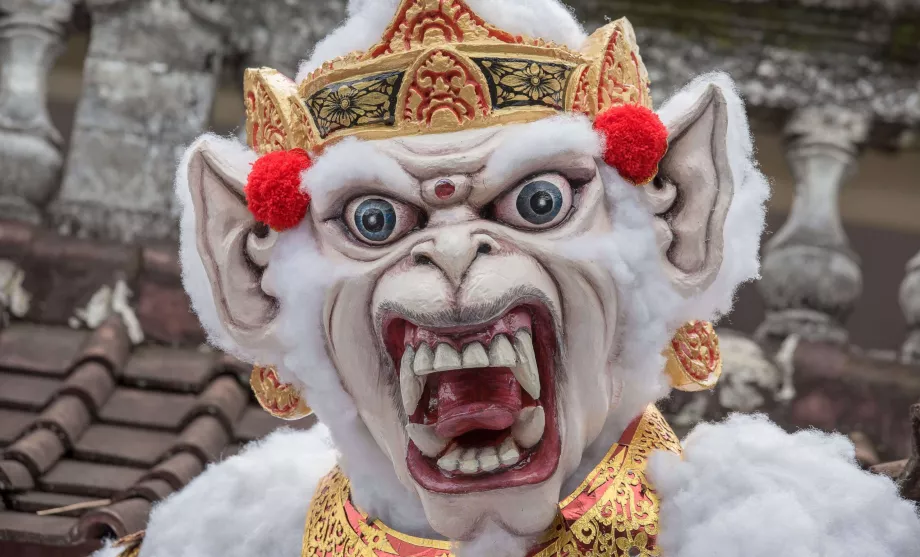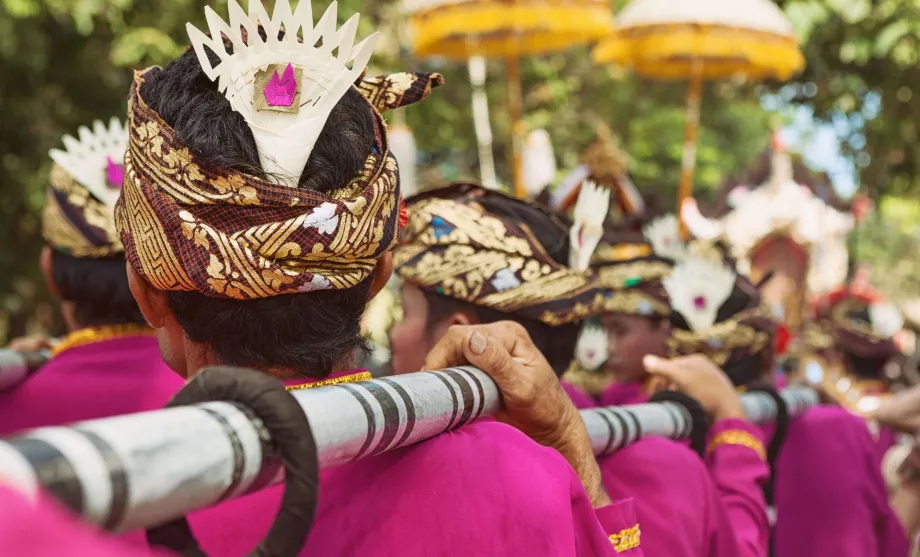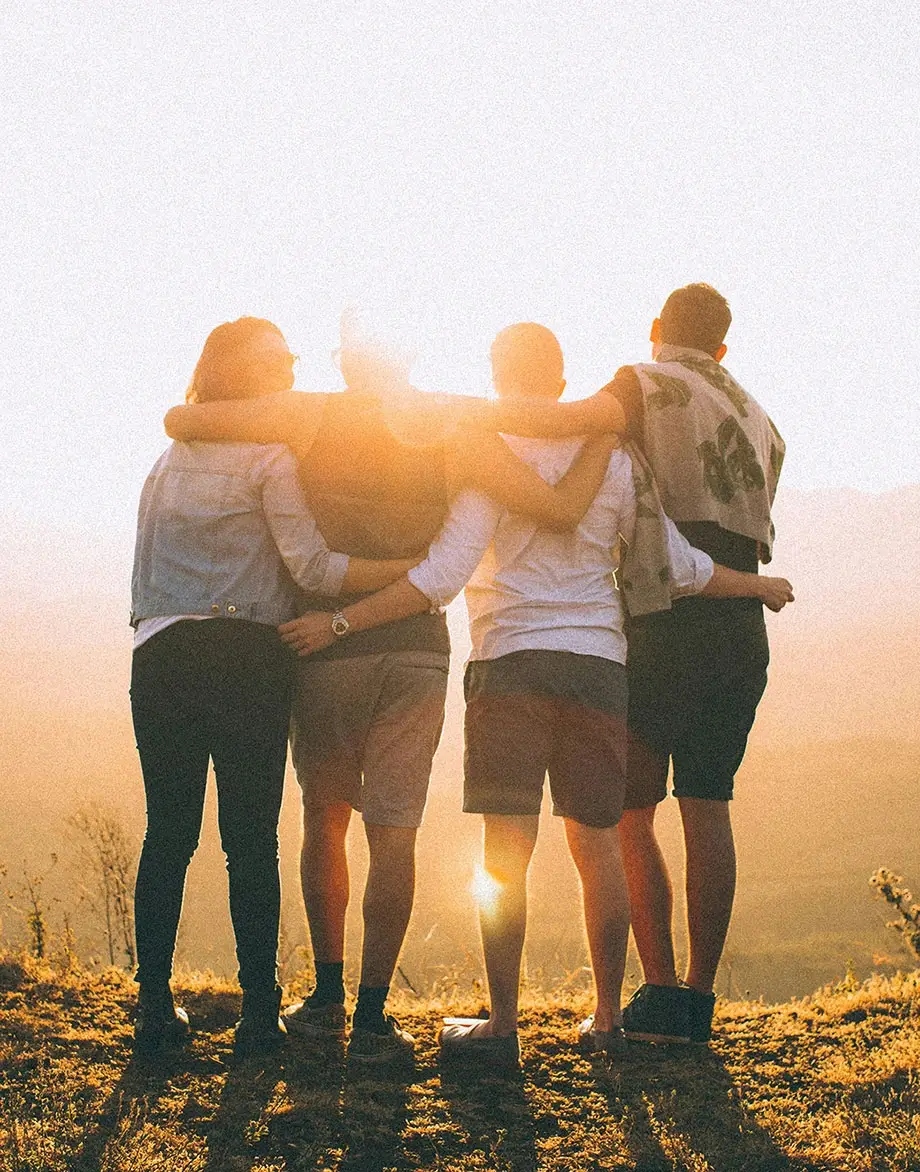Culture and history of Indonesia
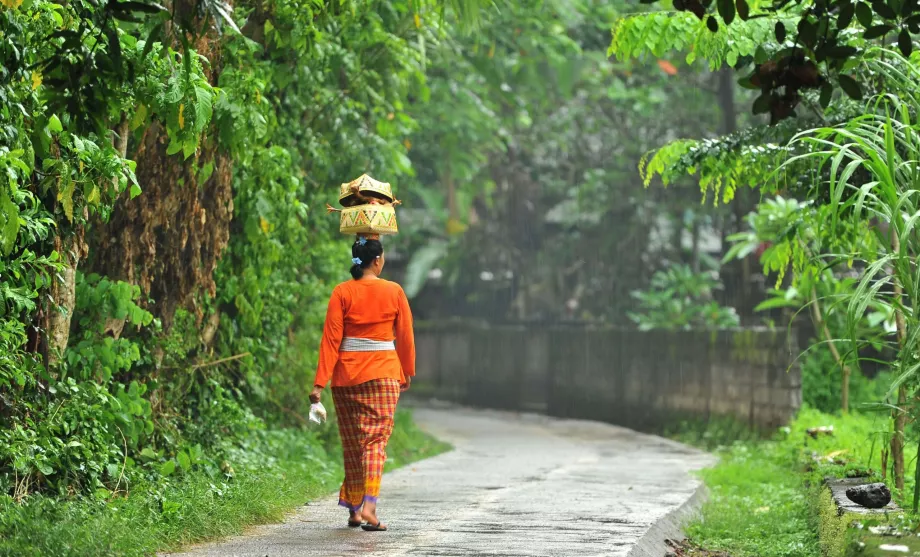
How easy is it to speak English in Indonesia? What are Indonesians like and when are shops closed in Indonesia?
Compare flight prices to Indonesia
Language
More than 500 languages and dialects are spoken in Indonesia. However, the official and widely used language is Indonesian, which has its roots in Malay.
This language is spoken by the majority of Indonesians, although it is not usually their mother tongue, they learn it in primary school.
Interestingly, the Indonesian language was created artificially in order to unify the official language throughout the country. For this reason, it is one of the simplest languages with one of the smallest vocabularies ever.
Knowledge of English
Although English is taught in secondary schools, there is not a great deal of familiarity with it.
In tourist areas, however, you can get by with at least very basic English. Young people are always significantly more likely to speak English. Older people over 40 rarely speak English.
You will make the locals happy just by going to their house, restaurant, shop. If you want to make their smile even wider (if at all possible), thank them in Indonesian.
Mini-dictionary
- Thank you - terima kasih
- You're welcome - alone
- Good morning - selamat pagi
- Good afternoon - selamat siang (approx. 12:00-15:00)
- Good afternoon - selamat sore
- Good evening/good night - selamat malam
- Goodbye - selamat tinggal (if you are the one leaving), selamat jalan (if you are the one staying)
- Yes - ya
- No - tidak
- Where - di mana,
- Eat - makan
- Drink - minum
- Room - kamar
- Hospital - rumah sakit
- Excuse me - maafkan aku
People
Indonesia is the country with the 4th largest population (290 million) and the largest Islamic country.
Indonesians are very kind, hospitable and polite to tourists. But they are also at the same time great patriots and it is very rude to criticize Indonesia in front of the locals.
But you better not expect the locals to come anywhere on time and deliver what they promise. They are quite comfortable, but if you insist on something, don't give up, you have some chance of success. Arm yourself with patience, because there is plenty of time for everything.
Religion
Indonesia is the largest Muslim country in the world. Islam is practiced by over 87% of the population, especially on the islands of Java, Sumatra, Borneo, Sumbawa, Lombok, Flores, Batam and the North Moluccas.
Christianity is the second most common religion with 10% of the population. Protestants predominate in West Papua, on the islands of Timor, Sumba, Alor, Wetar, in the central mainland of Sulawesi and around Lake Toba in Sumatra. Catholics have a majority on the island of Flores and in some southern parts of West Papua.
Hinduism predominates on the island of Bali.
Despite all present prejudices, Islam here takes a very gentle and moderate form, and the people are generally very kind, ever smiling and tolerant.
History in a nutshell
The original inhabitants came to Indonesia from Asia and Taiwan, bringing with them the knowledge of rice cultivation, which is still the most important crop for the local population today.
Trade also played an important role, not only between the islands but also internationally, especially with India and China. Under their influence, the country began to change, with Buddhist and Hindu kingdoms - Srivijaya, Sailendra, Mataram - arising and disappearing, leaving behind monumental religious monuments such as the Buddhist Borobudur, the Hindu Prambanan and the Arjuna temples on the Dieng plateau, which are still breathtaking today.
In the 13th century, Islam began to penetrate Indonesia via Sumatra, eventually displacing other religions and becoming the main religion of the archipelago. The Hindu king fled to Bali, which is still the only place besides India where people are predominantly Hindu.
In the 16th century, Europeans (mainly the Dutch) gradually began to colonise the islands, importing coffee, tea and especially spices.
Dutch rule was only ended by World War II, which ended the Japanese occupation of Indonesia. It was during this occupation that the Indonesian independence movement was awakened and on 17 August 1945 Sukarno, the first Indonesian president, declared the country independent.
Holidays
National holidays with a fixed date:
- 1 January - New Year
- 17 August - Indonesian Independence Day
- 25 December - Christmas Day
National holidays with a floating date are:
- Good Friday
- Chinese New Year (January/February)
- Galungan and Kuningan (Bali)
- Idul Fitri - end of Ramadan (August/September)
- Nyepi - Balinese New Year (March-May)
- Idul Abha - Muslim Day of Sacrifice
- Waisak - celebration of the death and enlightenment of Buddha (May)
- Muharram - Muslim New Year
- Maulud nabi Muhammad - birth of Muhammad (July-August)
Most religious festivals are celebrated in Bali. Interesting is, for example, the Balinese New Year Nyepi. On its eve, processions carry depictions of evil spirits, which are then ceremonially burned, and the expulsion of evil spirits from the island is celebrated until midnight.
After midnight, Bali is plunged into complete silence, this is to ensure that the evil spirits think the island is empty and do not return.
Everyone stays at home on this day as complete silence (you will be expected not to leave the hotel), contemplating and devoting themselves to family. There are no lights on, no one going out, traffic is completely silent, everything is closed and even the international airport is not working.
Sumba can offer an interesting Pasola festival, which is accompanied by ritual battles on horseback, while Papua attracts the Baliem Valley Festival organized especially for tourists.
There are also many other religious festivals that are of regional or even local significance and are not national public holidays.
Culture
Indonesia has been influenced for centuries by Indian, Arab, Chinese, Malay and European cultures, which have blended with ancient tribal traditions.
Hindu influences are particularly evident in Javanese and Balinese dance and theatre. Perhaps the most famous theatrical form is wayang, shadow theatre, whose stories often draw on the Indian epics of the Mahabharata and especially the Ramayana.
In the musical sphere, you will certainly encounter the gamelan, a traditional orchestra of percussion instruments. Its music can sound complex and unusual to the European ear.
The dyeing of cloth with wax - batik - also plays an important role in the local culture. Some of the beautiful designs used to be worn only by women of the royal family. Ikat weaving also has a long tradition in some regions.
Each region is characterised by a traditional craft, with many workshops for carving, sculpture, silversmithing, pottery, etc.
The combination of traditional culture and religious life is part of the daily life of the local population. Indonesia is an Islamic country and Islam is generally expressed in a very moderate form here. In addition to Islam, you will also find Hindus (especially in Bali), Catholics and Protestants, Buddhists and Confucians. It is compulsory for Indonesians to declare themselves as one of these religions.
Tourism
The level of service for tourists is highest in Bali and Java. As you move further away from the tourist centres, the frequency, level and reliability of service is likely to decrease.
Whatever you expect from a holiday, Indonesia has it to offer - idyllic and romantic beaches, rich unspoilt nature, crystal seas, ancient temples, breathtaking diving or snorkelling, ancient traditions, traditional crafts, adventurous expeditions, cultural activities, friendly people, delicious cuisine, refreshing drinks, exotic scents, ultimate relaxation and well-being and no rush or stress.
Book your hotel in Indonesia in advance
Geography
Indonesia offers many options for everyone. We list the most visited islands or archipelagos to give you an idea:
Sumatra - the westernmost island of the archipelago. Most tourists head to the northern half of the island.
For nature lovers, there are a huge number of species of plants and animals, but huge areas of rainforest have already been cleared, so many species are critically endangered. In the north of the island is Gunung Leuser Park, home to the Sumatran tiger, rhino, wild elephants and other interesting fauna.
Sumatra is home to the true rulers of the jungle - the orangutan.
In the northwest around Weh Island (Pulau Weh) you will find a rich underwater world. Here you will meet the diverse ethnic groups of Batak, Mentawai or Minangkabau. The largest volcanic crater lake Toba is also a frequent tourist destination. Many Christians live in the surrounding area.
Java - here you can visit monuments and ancient temples (Dieng, Prambanan, Borobudur, ...), make expeditions to see volcanoes (Bromo, Kawah Ijen, ... ) and beautiful scenery (Dieng plateau), go for culture and shopping(Jakarta, Yogyakarta, ...).
Kalimantan - here you will find the oldest system of rainforests, but as in Sumatra, their area has been dramatically reduced due to the expansion of oil plantations. Critically endangered species of plants and animals live here. The roads across the island are not of very good quality, and problems arise especially during the rainy season.
Bali is a paradise for beach lovers. Here you can pamper your body (on the beach, during massages, great food, ...) and spirit (meditation classes, yoga).
Surfers and lovers of culture will also find their place here.
On the island, in addition to the many hotels and beach resorts, there are also a huge number of temples, sacred sites and kitschily beautiful scenery.
In and around Ubud, you can get enough cultural sustenance or air out your wallet by visiting galleries and shopping for art. Shopping is also recommended around the surfing mecca of Kuta and Legian.
Lombok - a beautiful and rich underwater world for snorkelling and diving. A popular multi-day trekking destination is the Rinjani volcano. It is much less visited than neighbouring Bali, yet just as beautiful (or perhaps even more beautiful). The southern beaches are a popular destination for surfers.
Flores - suitable for nature lovers, you can take trips from here to see Komodo dragons (they live on the nearby islands of Rinca and Komodo), the island itself is beautifully green (not for nothing the Portuguese gave it a floral name), and is lined with a breathtaking underwater world.
Other interesting features are the local traditional villages. The Indonesians call it the Island of Snakes, beware of them.
Sumba - little visited, it impresses mainly with its traditional villages, picturesque scenery, beautiful beaches and good surfing conditions.
Sulawesi - the orchid or octopus-shaped island offers much. Inland lies the region of Tana Toraja, where the locals have largely preserved ancient traditions and you can enjoy fascinating funeral rituals and buildings with typical roof shapes.
Tucked away as if under the protection of a larger island, the small Togian islands offer the ultimate in relaxation on white beaches with turquoise waters, where you won't be disturbed by anything, including your phone. The signal doesn't reach here (yet).
The north of Sulawesi attracts with beautiful diving spots.
Moluccas - for diving or snorkeling, you will find here a rich underwater world.
Papua - an island for adventurers. It is covered in impenetrable jungle, inhabited by tribes that have rarely encountered modern civilisation. They still live in the way of their ancestors - as if you were in the middle of a Stone Age movie. As a rule, you have to move from place to place by plane, there are no roads on the island.
Any questions left?
If you have any questions or comments about the article...

